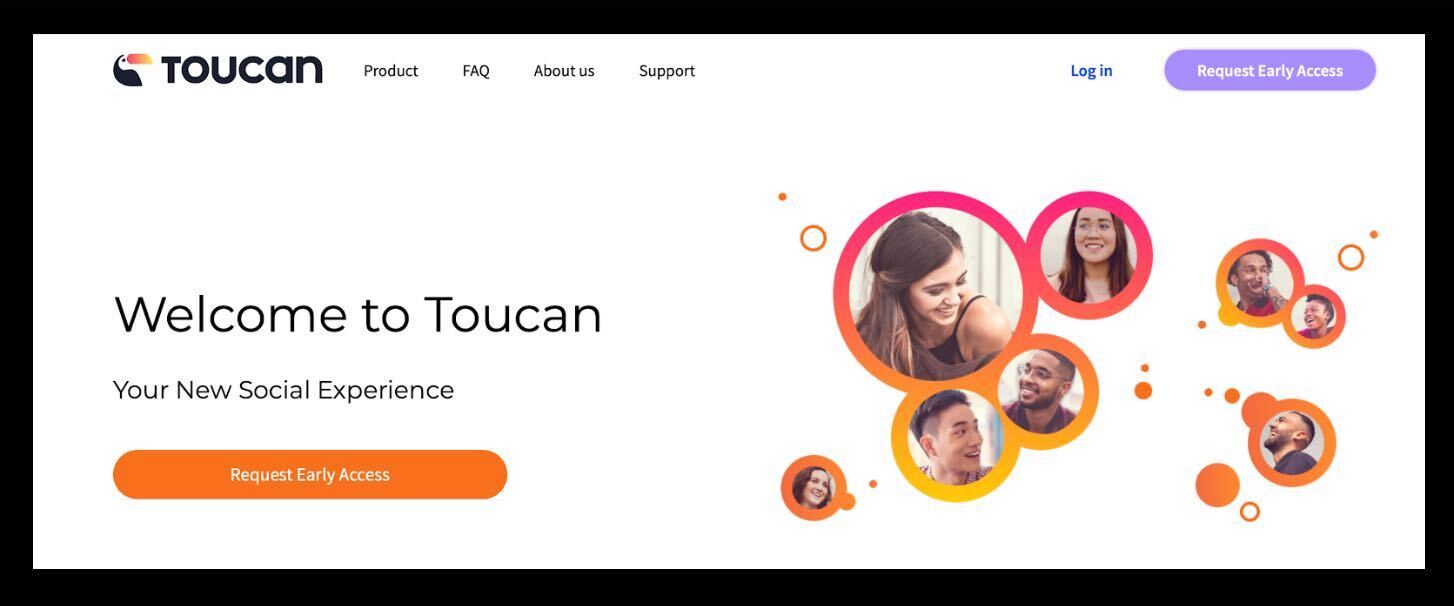“Initially, we just had an idea. It was literally a sketch on a sticky note. Within 24 hours of talking to this guy, he quit his job and came to help us build this company.”
Ethan Hellman ’24 described the process of pitching Toucan to its soon-to-be head of product design.
Ethan, along with his sister Antonia Hellman ’21 M.S. ’22, co-founded Toucan, a video-conferencing platform designed specifically to foster a greater sense of community within a virtual space.
For Antonia and Ethan, Toucan began at Stanford. Both had strong on-campus communities before the COVID-19 outbreak, with Antonia serving as the chair of Stanford in Government, and Ethan joining Stanford’s lacrosse team.
“We were really just hitting our stride with our communities,” Antonia said. “When COVID hit and we were all sent home, what really suffered was our connections with other people in our groups.”
Antonia and Ethan, like many other college students, struggled to maintain social connections through platforms like Zoom, which Antonia described as not particularly effective.
“It’s great seeing everyone’s faces,” Antonia said “But after a few minutes the mics get muted and the cameras get turned off and the conversation just dies completely.”
According to the duo, they began to realize that there was no platform where communities could gather and have “normal, natural conversations like they would have in real life.”
Thus, Toucan came to be.
“Toucan is a dynamic platform specifically designed for social events and gatherings,” Antonia said.
According to the siblings, what makes Toucan different from other video-conferencing platforms is its format. Individual users are set up within moving bubbles, allowing them to join and leave conversations at their leisure. Users can also send private messages across bubbles, mimicking the real-life non-verbal cues that lead a person to enter or leave a conversation.
This formatting aligned with Antonia’s goal of “simulating a cocktail-style environment within a virtual space.”
Toucan also has a variety of other features, like broadcast mode — otherwise known by Ethan as “god mode” — which allows users to broadcast across all bubbles.
Ironically, one of the biggest challenges Antonia and Ethan faced when creating their platform was learning to operate across a virtual space.
“Our chief engineer is in Canada. Our head of product is in Italy. Our designers are in London. Our developers are in Ukraine,” Ethan said. “We’ve never met any of them in person, so there are certain challenges that come up when you’re working across time zones.”
Despite these challenges, Antonia and Ethan are grateful for the connections they have been able to make with both their co-workers and their customers.
Antonia, who is in charge of customer acquisition, said that “meeting people from different communities and different backgrounds and talking about how Toucan can help them is just really uplifting.”
At Stanford, Toucan is currently in talks with several Voluntary Student Organizations (VSOs), including the Society for International Affairs at Stanford (SIAS), Stanford in Government, Stanford Democrats and Stanford Women in Finance.
“We did a demo with Antonia and thought it was really great,” Lily Liu, president of SIAS, said. “The design is beautiful, it’s more adaptive, and it simulates a mixer vibe really well. It’s really refreshing compared to Zoom, where it’s difficult to have side conversations and create a more natural environment.”
Liu added that Toucan is especially compatible with SIAS, which places heavy emphasis on community and personal connections.
“One of the biggest values of SIAS is our community. We like to create events for freshmen and new members to feel included and get to know each other,” she said. “Toucan is a platform that allows freshmen to talk to each other without being hindered by the rigid format of Zoom.”
Antonia emphasized the main goal of Toucan is bringing people together.
“We’re really looking to support people, especially during this really bizarre time. Our goal is to bring people together, bring communities together, across geographic distance,” she said. “Through Toucan, we want to make loneliness obsolete.”
Contact Nina Iskandarsjach at ninaisk ‘at’ stanford.edu.
